THE DIVISION OF NATURE (PERIPHYSEON) (in Part)
THE DIVISION OF NATURE (PERIPHYSEON) (in Part)
THE DIVISION OF NATURE (PERIPHYSEON) (in Part)
You also want an ePaper? Increase the reach of your titles
YUMPU automatically turns print PDFs into web optimized ePapers that Google loves.
John Scotus Eriugena<br />
Periphyseon<br />
NUTRITOR: You judge correctly, as I th<strong>in</strong>k. If therefore the aforesaid Div<strong>in</strong>e<br />
Names are confronted by other names directly opposed to them, the th<strong>in</strong>gs<br />
which are properly signified by them must also of necessity be understood to<br />
have contraries opposite to them; and therefore they cannot properly be<br />
predicated of God, to Whom noth<strong>in</strong>g is opposed, and with Whom noth<strong>in</strong>g is<br />
found to be co-eternal which differs from Him by nature. For right reason<br />
cannot f<strong>in</strong>d a s<strong>in</strong>gle one of the names already mentioned or others like them to<br />
which another name, disagree<strong>in</strong>g with it, be<strong>in</strong>g opposed or differ<strong>in</strong>g from it<br />
with<strong>in</strong> the same genus, is not found; and what we know to be the case with the<br />
names we must necessarily know to be so with the [th<strong>in</strong>gs] which are signified<br />
by them. But s<strong>in</strong>ce the expressions of div<strong>in</strong>e significance which are predicated<br />
of God <strong>in</strong> Holy Scripture by transference from the creature to the Creator-if,<br />
<strong>in</strong>deed, it is right to say that anyth<strong>in</strong>g can be predicated of Him, which must be<br />
considered <strong>in</strong> another place-are <strong>in</strong>numerable and cannot be found or gathered<br />
together with<strong>in</strong> the small compass of our reason<strong>in</strong>g, only a few of the Div<strong>in</strong>e<br />
Names can be set forth for the sake of example. Thus, [God] is called Essence,<br />
but strictly speak<strong>in</strong>g He is not essence: for to be<strong>in</strong>g is opposed not-be<strong>in</strong>g.<br />
Therefore He is (hyperousios), that is, superessential. Aga<strong>in</strong>, He is called<br />
Goodness, but strictly speak<strong>in</strong>g He is not goodness: for to goodness wickedness<br />
is opposed. Therefore (He is) (hvperagathos) that is, more-than-good, and<br />
(hyperagathotas), that is, more-than-goodness. He is called God, but He is not<br />
strictly speak<strong>in</strong>g God: for to vision is opposed bl<strong>in</strong>dness, and to him who sees<br />
he who does not see. Therefore He is (hypertheos) that is, more-than-God-for<br />
(theos) is <strong>in</strong>terpreted "He Who sees." But if you have recourse to the alternative<br />
orig<strong>in</strong> of this name, so that you understand (theos), that is, God, to be derived<br />
not from the verb (theoro), that is, "I see," but from the verb (theo), that is, "I<br />
run," the same reason confronts you. For to him who runs he who does not run<br />
is opposed, as slowness to speed. Therefore He will be (hypertheos), that is,<br />
more-than-runn<strong>in</strong>g, as it is written: "His Word runneth swiftly": for we<br />
understand this to refer to God the Word, Who <strong>in</strong> an <strong>in</strong>effable way runs<br />
through all th<strong>in</strong>gs that are, <strong>in</strong> order that they may be. We ought to th<strong>in</strong>k <strong>in</strong> the<br />
same way concern<strong>in</strong>g Truth: for to truth is opposed falsehood, and therefore<br />
strictly speak<strong>in</strong>g He is not truth. Therefore He is (hyperalathas) and<br />
(hyperalatheia), that is, more-than-true and (more than-)truth. The same<br />
reason must be observed <strong>in</strong> all the Div<strong>in</strong>e Names. For He is not called Eternity<br />
properly, s<strong>in</strong>ce to eternity is opposed temporality. Therefore He is<br />
(hyperaionios), and (hyperaionia), that is, more-than-eternal and (more-than-)<br />
eternity. Concern<strong>in</strong>g Wisdom also no other reason applies, and therefore it<br />
must not be thought that it is predicated of God properly, s<strong>in</strong>ce aga<strong>in</strong>st<br />
wisdom and the wise are set the fool and folly. Hence rightly and truly He is<br />
called (hypersophos), that is, more-than-wise, and (hypersophia), that is, morethan-wisdom.<br />
Similarly, He is more-than-life because to life is opposed death.<br />
Concern<strong>in</strong>g Light it must be understood <strong>in</strong> the same way: for aga<strong>in</strong>st light is<br />
set darkness. For the present, as I th<strong>in</strong>k, enough has been said [concern<strong>in</strong>g<br />
these (matters)].<br />
9


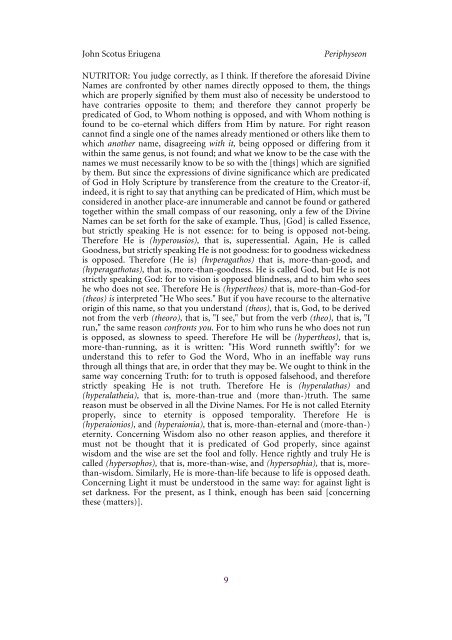
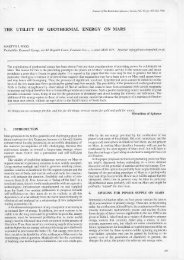
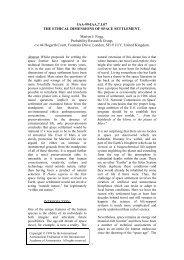
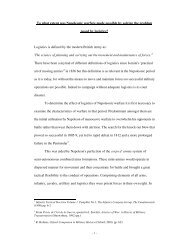
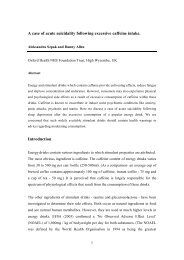
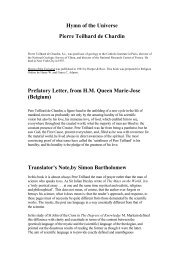


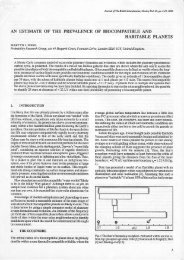
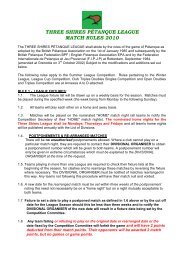
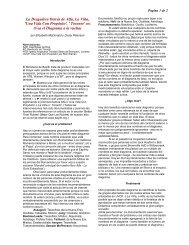
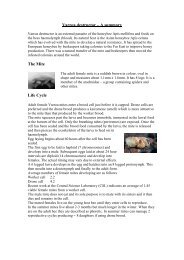
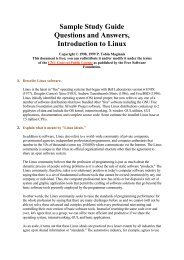
![Tibetan Herbal Medicine Core Curriculum [PDF]](https://img.yumpu.com/32594566/1/184x260/tibetan-herbal-medicine-core-curriculum-pdf.jpg?quality=85)
